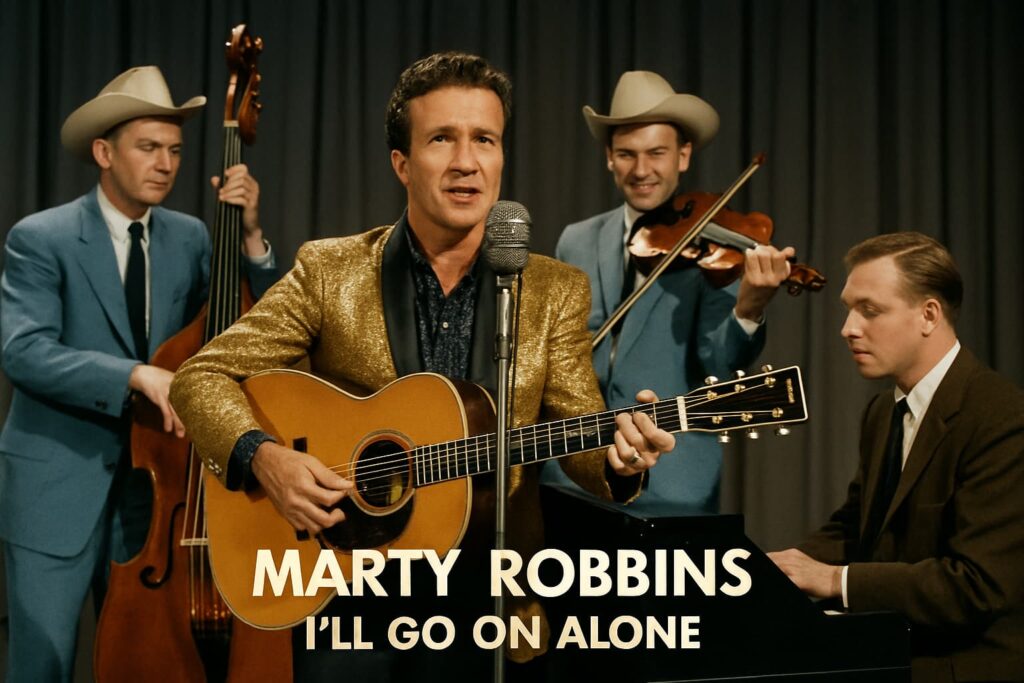
The poignant ballad of a man’s final stand for self-respect.
There are certain songs, like old photographs yellowed with time, that immediately transport you to a place and a feeling. They don’t just recount a story; they embody an era and the timeless emotions that define it. For many, the first time they heard Marty Robbins sing “I’ll Go On Alone” was one of those moments. Released in late 1952, this deeply personal and resonant ballad was more than just a song; it was a defiant, yet heartbreaking, declaration of self-respect in the face of a lover’s impossible demands. And it was a triumphant one, too, soaring to the number one spot on the Billboard country chart in January of 1953, marking a significant milestone as Marty Robbins‘ first-ever chart-topper. This victory cemented his place in the Nashville soundscape and set the stage for a career that would span decades and produce a treasure trove of classics, but it all began with this one, simple, powerful promise.
The story behind the song is as personal as the lyrics themselves. Marty Robbins wrote it, drawing from a place of profound emotional honesty. The narrative is a classic, painful one: a relationship at a crossroads. The woman he loves wants him to change, to abandon the person he is and the life he has built, to become someone she can more easily love. It’s a universal conflict, the struggle between compromising for love and remaining true to oneself. Robbins, in his inimitable style, chooses the latter, not out of bitterness, but out of a stoic resignation. The song’s meaning is a testament to the idea that love, no matter how strong, cannot and should not require you to sacrifice your very soul. The lyrics—”If you don’t want me like I am, then, please, don’t pity me / If you can’t change a little bit, then, why not set me free?”—are not a plea, but a final, measured offer. He’s not begging her to stay; he’s giving her a choice, knowing full well what his own will be if she cannot accept him for who he is.
The beauty of “I’ll Go On Alone” lies in its raw, unvarnished delivery. The song isn’t an epic Western saga like “El Paso,” or a rockabilly romp like “Singing the Blues.” It’s a stripped-down, traditional country ballad, where every note and every word carries the weight of a heavy heart. Robbins’s vocals are a masterclass in emotional restraint, conveying a deep sadness without ever dissolving into self-pity. You can hear the ache in his voice, the quiet dignity of a man forced to make an impossible decision. The sparse instrumentation, with the gentle sway of the guitar and the mournful cry of the fiddle, serves only to amplify the feeling of solitude and finality. It’s a song for anyone who has ever had to walk away from a love that asked for too much, a song for those who understand that sometimes, the hardest and most lonely path is also the only one that allows you to keep your integrity intact. It’s a powerful reminder that while going on alone may be painful, it is infinitely better than disappearing within a relationship that seeks to erase you. It is a timeless reflection on the bittersweet choice to find strength in solitude, a choice many of us have had to make, and a song that still speaks to the heart of what it means to be truly alone, but also truly free.